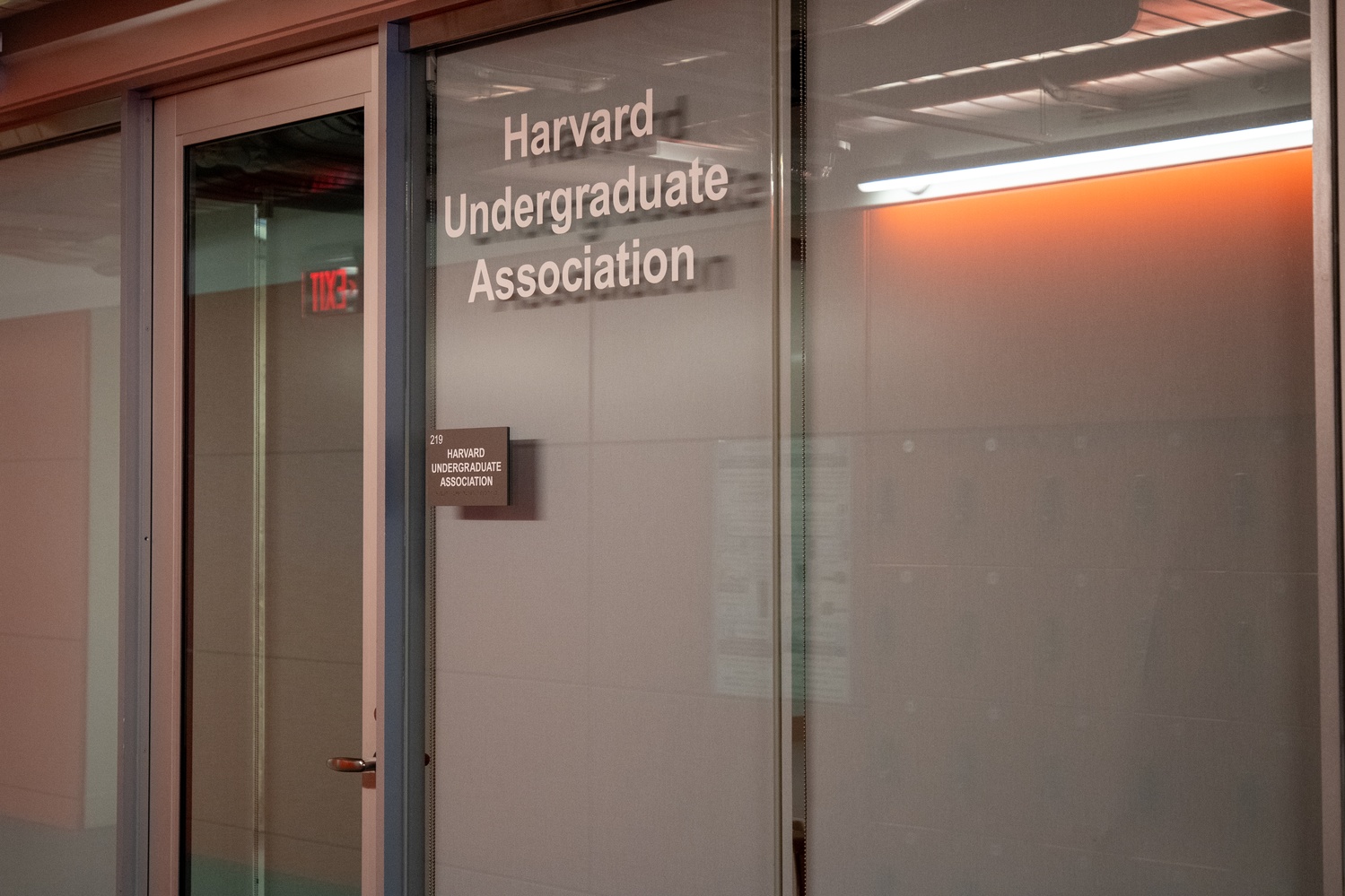
News
Harvard Grad Union Agrees To Bargain Without Ground Rules

News
Harvard Chabad Petitions to Change City Zoning Laws

News
Kestenbaum Files Opposition to Harvard’s Request for Documents

News
Harvard Agrees to a 1-Year $6 Million PILOT Agreement With the City of Cambridge

News
HUA Election Will Feature No Referenda or Survey Questions
I Was on the HUA’s Problem Solving Team. We Failed, But So Did the HUA.

I was on the Harvard Undergraduate Association’s problem solving team.
We failed you, but it’s hardly our fault alone. If my time on the team has made one thing clear, it’s that the HUA is a fundamentally broken body from its foundation on up — and no constitutional clarification would be sufficient to fix that.
The seven-person team was assembled in the wake of last spring’s attempted student referendum on divestment from Israel. That referendum, proposed by the Harvard Undergraduate Palestine Solidarity Committee, was tabled by HUA officers using an obscure constitutional mechanism after a second parody referendum was proposed in an apparent attempt to mock the PSC. As a result, all referenda were brought to a grinding halt.
It was then up to me and the rest of the problem solving team to decide whether the PSC referendum could proceed.
Evidently, to solve any serious dispute among its members — or between its members and the student body writ-large — the HUA’s constitution only offers two recourses: absolute inaction or a problem solving team.
“Randomly-selected groups of undergraduates can be convened as problem solving teams to solve problems, resolve conflicts, or decide constitutional disputes when other efforts have been exhausted,” writes the HUA constitution. And when the co-presidents are unable to keep their officers in line, the constitution suggests a problem solving team be convened.
Officer suspension? Want a recall vote? Jurisdictional dispute? Problem solving team.
The Crimson’s headlines have made our team’s inaction plain: Months passed, and the team delivered nothing. Responsibility for that inaction should end with us. But let there be no mistake, the problem solving team was destined for failure from the very beginning; our mere existence is a reflection of the HUA’s basic dysfunction.
In place of extensive procedures and systems crafted over the lifetime of its predecessor, the Undergraduate Council, to accommodate its varied and challenging responsibilities, the HUA has delivered government so pared down (detailed in a mere 22-page constitution) as to render it a sham government without basic competency to discharge its purported functions.
For thorny governance, the constitution asks our leaders to throw their hands up and call a problem solving team. Let the unelected, randomly selected folks lacking even an ounce of real procedural power make the tough call. Only then can our elected officers rubber stamp it.
In essence, the current constitution treats these teams as a “figure-out-later” card for an unfinished government.
Irrelevance and silence allowed that structural laziness to go unchecked — the HUA’s fatal mistake, provoked by the PSC referendum in April, was choosing to pipe up, convene a problem solving team, and let the public see what happens.
HUA leadership’s apparent resistance to the PSC referendum required that they reach for constitutional procedure — only to find none available except a volunteer committee devoid of clear mandate or purview.
The HUA’s function as a vessel for student voices, and indeed clarification of the organization’s basic constitutional powers, hinged for months on a body of randomly selected students, myself among them.
We proved just how dangerous the problem solving team — as a foundational mechanism for governance — truly is.
Months dragged on; the team failed to collaborate on a proposal.
By October of this semester, HUA executives presented the problem solving team with their own proposal for a fix — which would allow them to sidestep any contentious political referenda in the future. The team gave it their rubber stamp. I abstained.
But the damage has been done. The HUA failed to serve as a channel for student voices. The problem solving team failed to serve as a check on the student government. And we are all worse off for it.
The HUA has proven itself incapable of governing on our behalf. In throwing a blanket on the PSC referendum and blocking future referenda on topics of any real contention, it has explicitly curtailed speech. Perhaps just as dangerously, by its complete ineptitude and dysfunction, the HUA has implicitly muted the democratic interests of the students it purports to serve.
If problem solving teams are the HUA’s best answer to our campus’ toughest moments, then our government has reached a sorry state indeed. And if our performance is any reflection on the potential for problem solving teams to effectively intervene in those moments, then we’re surely screwed.
Harvard students shut down the UC because its constitution was old and big and confusing — the body had grown too bureaucratic and aloof. We replaced that council with the HUA, hoping it would be simpler and more transparent — but that government was hastily conceived, and the ambiguity and carelessness expressed in its foundational documents render it incompetent.
The referenda process is clarified, and my team has apparently been disbanded. But make no mistake: The HUA’s problems are far from solved.
Lorenzo Z. Ruiz ’27, a Crimson Editorial editor, lives in Winthrop House and was a member of the HUA’s problem solving team.
Want to keep up with breaking news? Subscribe to our email newsletter.
